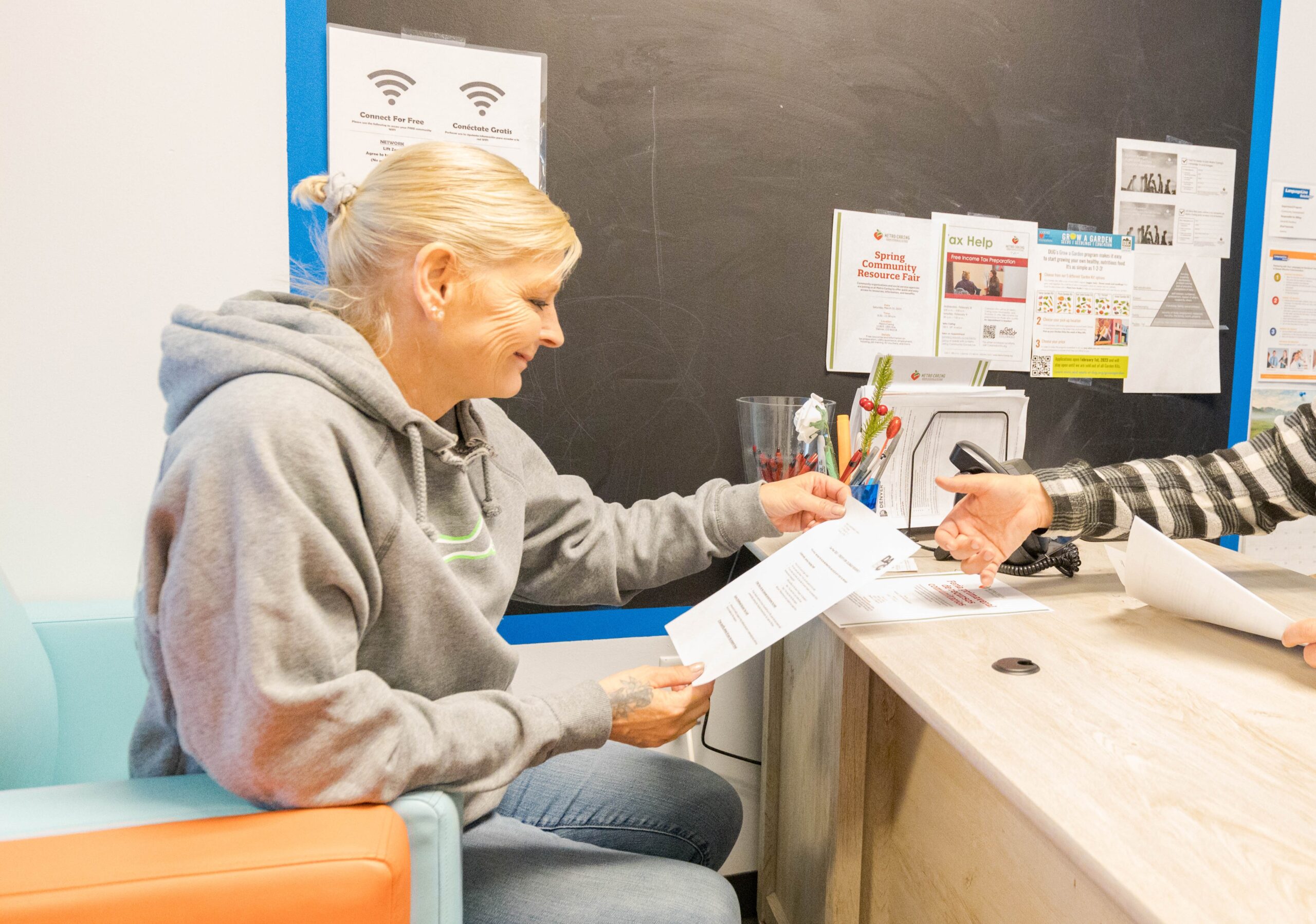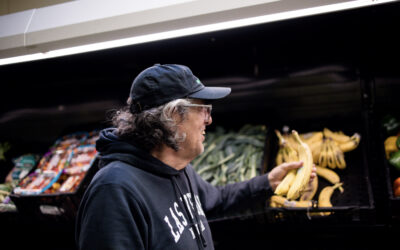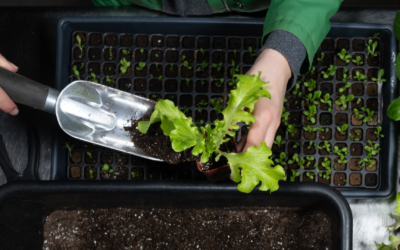As a Community Connector, Wil Smith says his role at Metro Caring is to be a problem solver.
He sits down with community members who want to meet one-on-one to learn about other resources outside of Metro Caring that may help address challenges related to food insecurity.
Connectors often assist community members by providing in-state identification and birth certificate vouchers that can be redeemed at local offices for free, helping with applications for social services like SNAP (Supplemental Nutrition Assistance Program), and offering document interpretation. They also make referrals to housing resources, utility assistance, and tax preparation services.
After hearing about someone’s situation, Wil consults the Connectors’ database of resources and files that have been crowdsourced by the team over time to find the most effective and culturally accessible options.
One of the most frequent referrals Wil makes is for a clothing voucher at A Precious Child, a nonprofit in Broomfield that provides children with opportunities and resources to empower them to achieve their full potential.

Wil Smith is a Metro Caring Community Connector and Volunteer Lead.
“It’s really gratifying when people come back to Metro Caring and say they found a solution, like housing, because of a connection you helped make,” Wil says.
Our community doesn’t come to our Fresh Foods Market because there’s a lack of food at the grocery store. The reality is that our community is forced to rely on places like Metro Caring because of several systemic barriers that prevent people from affording food.
Wil says Connectors most often hear about challenges with finding affordable housing, one of the leading causes of hunger, according to community surveys we conducted.
The Connection team is available to help our community find immediate solutions, such as identifying housing resources that are a best fit for someone. Some housing services are restricted to certain ages, for example, and Connectors can help filter through the options.
Gerardo Gamboa, community development team lead at Metro Caring, says it’s important to provide resources that people are eligible for.
“If you send a community member somewhere they aren’t going to be able to use the resource, that breaks our trust with them,” Gerardo says.

Gerardo Gamboa is Metro Caring's Community Development Team Lead.
The Community Connections program launched in 2022 with a focus on increasing access to various social services and nonprofit organizations that provide immediate solutions to some of the root causes of hunger people experience.
The program evolved from our previous Community Navigation program, after making several improvements and changes based on feedback from community focus groups.
The former program, which operated before the COVID-19 outbreak, required every person who had a Fresh Foods Market shopping appointment to meet with a volunteer. By switching Community Connections to be an optional service, wait time to get into the market is significantly reduced. This also increases the amount of time a Connector can spend with each person who wants to meet, which allowed the team to expand the number of services they offer. Connectors now have time to help community members enroll for SNAP and Low-income Energy Assistance Program (LEAP) benefits, rather than simply sending them to another place for enrollment.
“We can take extra time, listen to their story, and hear what’s going on,” Gerardo says. “If someone shows up with a backpack full of clothes, maybe we’ll be able to suggest a clothing resource. Being able to dig into the conversation a little deeper, that’s what makes Community Connections important. When you pick out those things, people know you’re really listening.”
Most importantly, the new model allows people to choose, which is a step toward making the program a more equitable experience. When anyone walks into a supermarket, they aren’t asked for an interview or to explain what brings you to shop. It shouldn’t be any different at anti-hunger organizations. Everyone deserves access to fresh, healthy foods—without owing us their time or their stories.
Community Connectors are also specialized contractors, hired through an interview process. They also receive specialized training, such as for trauma-informed care, intercultural development, and for resources like Colorado PEAK, an online service to screen and apply for medical, food, cash, and early childhood assistance programs.
Gerardo says that the team leverages each other’s strengths. One of the Connectors, Jeff, organized a successful resource fair at Metro Caring this spring, with over 20 partner organizations and more than 100 visitors. Naomi, who recently joined the Community Connections team, is helping the team partner with Hunger Free Colorado to leverage their resources.
“Choosing the right team always helps,” Gerardo says.
Since the program’s launch a year ago, Community Connectors have held over 550 individual meetings with members of our community. The team started small, but now has eight part-time Connectors.
At Metro Caring, we don’t simply want to offer people food and send them on their way. Community Connectors help provide a level of wraparound services that leverage the best of organizations and government benefits across Denver and Colorado.
“I love this place because it really does feel like community,” Wil says. “I started volunteering at Metro Caring during the pandemic to seek connection. There are so many connections to make here.”




